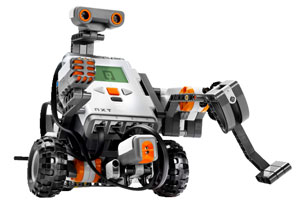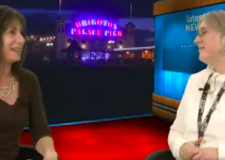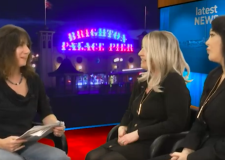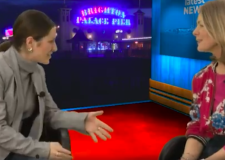Science: Unlocking Potential
Dr Caroline Oprandi Keeping you up to date with science and technology at PACA
I hope you have all seen the fantastic images of Pluto by now. The American space agency’s New Horizons probe has been returning images of Pluto that include a view of the dwarf planet’s strange icy plains. As reported in BBC news, Alan Stern, the mission’s chief scientist commented: “We now have an isolated, small planet that’s showing activity after 4.5 billion years.” Prof Stern said the discovery would “send a lot of geophysicists back to the drawing boards”. The image shows mountains at the edge of a heart-like region that are up to 11,000ft (3,300m) high and which team members have compared to North America’s Rocky Mountains.
It really is exciting stuff but will require textbooks to be re-written. It does make one wonder though, at what point will we realise that textbooks in schools, especially scientific ones, are not really a viable option since they cannot be updated fast enough? Maybe we need a combination of both, a small reference textbook and then leave the rest to technology and reliable resources on the internet?
I went to a conference recently at the National STEM Centre in York, which was on “programmable components”. I was very pleased with myself when I actually built my own robot and got it to work. The presenter highlighted that we just haven’t got the teachers with the skills to teach this type of stuff in schools; schools within the UK are falling behind at an alarming rate.

It was therefore reassuring to know though that I had left PACA with the students and staff designing courses and targets for Lego Mindstorm robots. The University of Sussex Team called ‘Robogals’ had come in for the day with their robotic equipment and the children were having loads of fun.
School has finished now for summer but I am looking forward to a fresh term where we will be following a project-based learning approach for STEM. To start with we are looking at Astronomy projects, which will fit in with our observatory and array of telescopes that we have and then we will be moving onto programmable components. Following on from the success of the winning “3D Interactive Periodic Table Project” at the Big Bang Show (described by judges as an excellent concept showing an excellent mix of skills and knowledge), we will be rolling out a KS3 STEM agenda developing Educational Learning Fun (ELF) games designed for the classroom by pupils for pupils.
Who said learning wasn’t fun! A huge thank you to Anthony from the University of Sussex who volunteered both his time and expertise on this project. Also thank you to Melanie, Joel and Dr Kate Howland from the University of Sussex for helping at the After School club. We look forward to working with you some more in September!





















